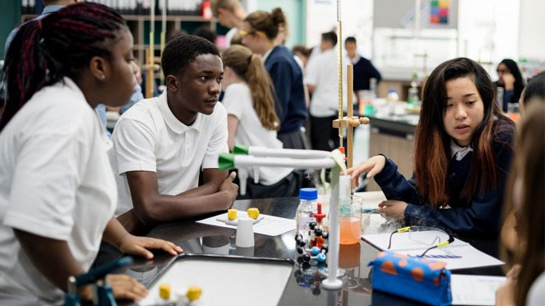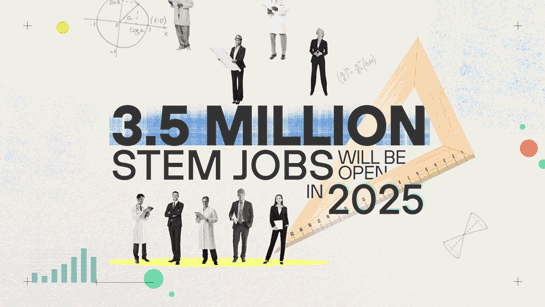The number of science, technology, engineering, and mathematics (STEM) jobs is growing faster than ever in the United States, creating an urgent need for education and training in high-demand areas. Even with looming staffing shortages, the United States STEM workforce continues to underrepresent Hispanic, Black, and women workers, accounting for just 8, 9, and 27 percent of personnel, respectively.
The U.S. Bureau of Labor Statistics projects that STEM jobs will grow 11 percent by 2029, creating more than 500,000 new jobs in the American labor market and intensifying a predicted gap of 3.5 million open positions in 2025.
As one of just eight participating colleges and universities, Penn State’s EnvironMentors program connects underrepresented high school students with undergraduate students and faculty to collaborate on impactful research and inspire interest in pursuing careers in STEM fields.

Gregory Jenkins, Professor of Meteorology and Atmospheric Science, Geography, and African Studies; Director, Penn State EnvironMentors
IMPACT
Inclusive community building today creates the diverse STEM fields of tomorrow
“We don’t know which geniuses we’re leaving behind. We’ve got to find them, even if they never go to Penn State, and give them a positive experience.”
Inspiring Science
When leading the charge to bring EnvironMentors to Penn State, Gregory Jenkins discussed the challenges that underrepresented groups may face, like poverty, unemployment, and under-resourced public schools, that can impact the likelihood of completing a STEM degree. Compounding these obstacles, STEM career requirements can feel daunting, like studying a rigorous topic, learning specialized skills, and participating in hands-on field experiences.
Structured to inspire new skill development and create a community of STEM-minded members, the EnvironMentors program facilitates projects where high school students partner with university students and faculty to research important topics.
Participating in a STEM program that cultivates abilities in problem solving, critical thinking, and team work not only prepares students for higher education, it actually increases the likelihood of pursuing and earning a degree in STEM by 33 percent for underrepresented youth.
“We want the ‘smart’ kids, but that’s not all we want. We want the kids who show the spark, who I can tell are creative, who like challenges, but just need that space to grow. That’s what we’re trying to do,” said Jenkins.
Evidence suggests that by participating in STEM summer programs, underrepresented communities of students are more likely to graduate from high school, attend four-year colleges, and earn STEM degrees.

A Community in STEM
Since launching EnvironMentors, the program has expanded to several Pennsylvania communities. In addition to the State College area, high school students near Penn State Harrisburg in Middletown and Penn State Shenango in Sharon have collaborated in research alongside faculty and undergraduate student mentors.
“What I love about having this program at Penn State is that no matter where you go in Pennsylvania, Penn State has a fingerprint,” said Jenkins. “We’re going to use that to our advantage because there are lots of places in Pennsylvania that are underserved and underrepresented.”
“If you’re in high school, it is important to see what a college experience looks like by talking to the people who are there.”
Researching Real Issues
EnvironMentor high school students get a preview of what research at a doctoral university is like, collaborating with faculty weekly on cutting-edge research related to climate change, air quality, greenhouse gases, pesticides, material analysis, entomology, and ecology.
“A student working with a faculty member each week has a certain gravitas to it. Not only are they building research skills in a lab, but they’re building a relationship with a faculty member,” added Jenkins.
Outside of research activities, the program also provides high school students with opportunities to participate in field trips and events with guest speakers to bring STEM careers to life.
Driven to prepare the next generation of STEM professionals, Penn State faculty are collaborating to cultivate necessary skills and provide inspiring experiences to provide greater access to all.

Penn State’s EnvironMentors chapter is part of the Global Council for Science and the Environment’s network of programs a science education and national college access program. With a mission to mentor and motivate high school students from communities underrepresented in the sciences, the program promotes student preparation as they conduct environmental research and acquire skills that will allow them to build careers and become more active stewards of their communities and the environment.



